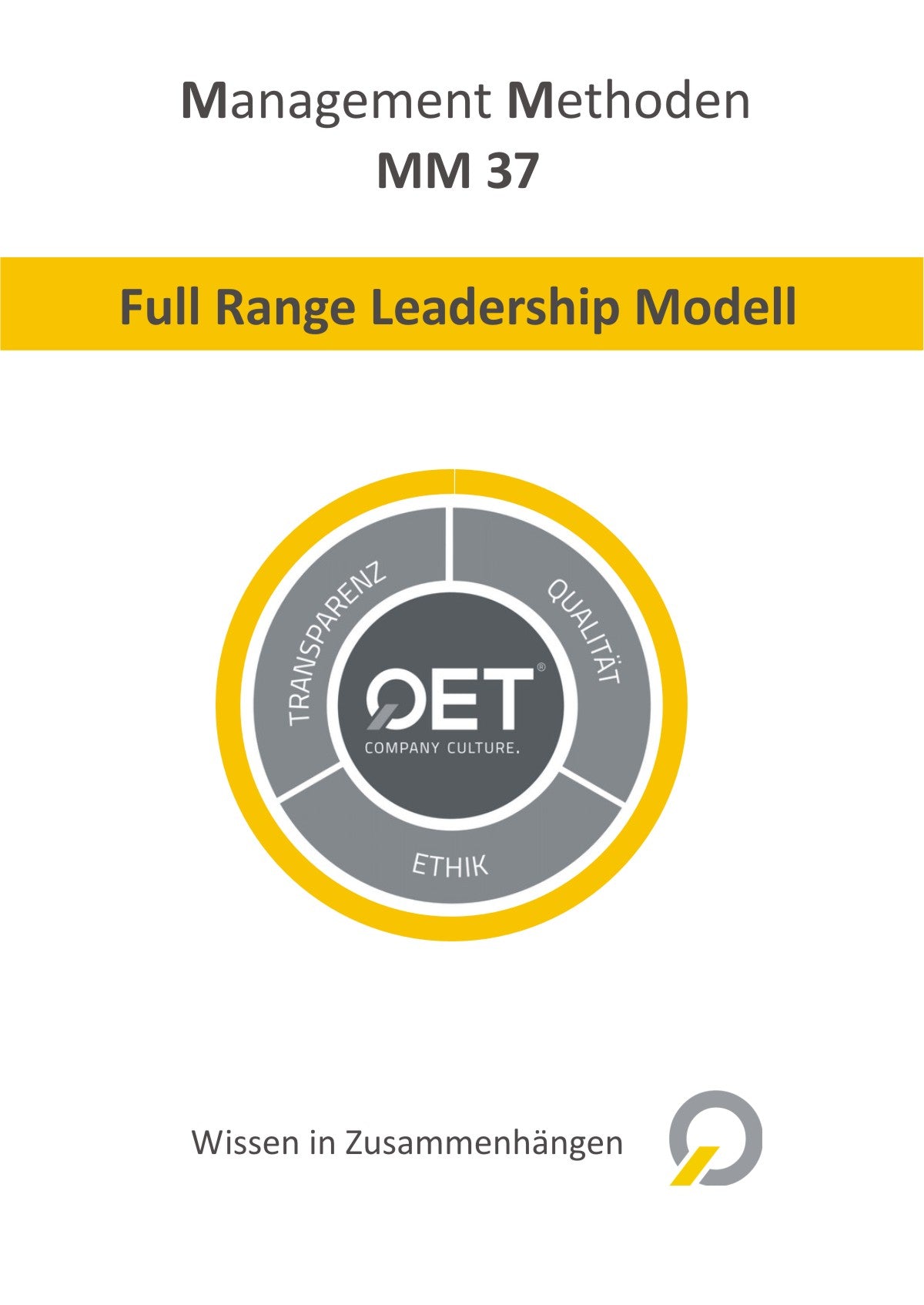QET Corporate Culture
MM 37 Full Range Leadership Model
MM 37 Full Range Leadership Model
Couldn't load pickup availability
In 1991, in "The full range of leadership development programs: Basic and advanced manuals," Avolio and Bass used a scale to compare laissez-faire leadership, transactional leadership, and transformational leadership. The efficiency of the work group increases with the leader's commitment. They stated that no or little commitment represents the laissez-faire leadership style, while optimum efficiency is achieved with high leadership commitment in fully practiced transformational leadership.
Leadership behavior is typically measured in individual cases using the Multifactor Leadership Questionnaire (MLQ). Bernard M. Bass developed the original questionnaire with nine characteristics, each with four items, which can be assigned on Likert scales ranging from "1: absolutely not" to "5: frequently, if not always." These include:
Passive or leadership-avoiding behaviors:
• Rejection of participation: Frequency of general rejection of leadership responsibility (laissez-faire)
• Intervention when needed: Frequency with which managers wait for a specific problem to arise before intervening (passive management by exception
Transactional leadership behavior:
•Monitoring of errors and deviations: Frequency (or diligence) with which managers themselves look for problems in order to then intervene (active management by exception)
•Performance-based reward: Frequency with which work successes are rewarded as agreed
Transformational leadership behavior:
•Employee training and development: Frequency (or extent) in which managers recognize the need for employee development
•Encouragement of innovation: Frequency (or extent) in which managers encourage creativity and innovation among employees
•Inspirational motivation: Frequency (or degree) in which managers motivate employees by conveying meaning and challenges
•Acting with integrity: The frequency (or extent) with which leaders communicate their values and visions, as well as the moral and ethical consequences of their actions
•Building trust: Frequency (or degree) in which managers build trust and put their own interests aside for the benefit of their employees
In the context of:
Q: Q01, Q05, Q12, Q17, Q18
E: E01, E02, E16
T: T03, T07, T09, T12, T14
Share

